
With Geneva, Switzerland strode boldly into the 20th century
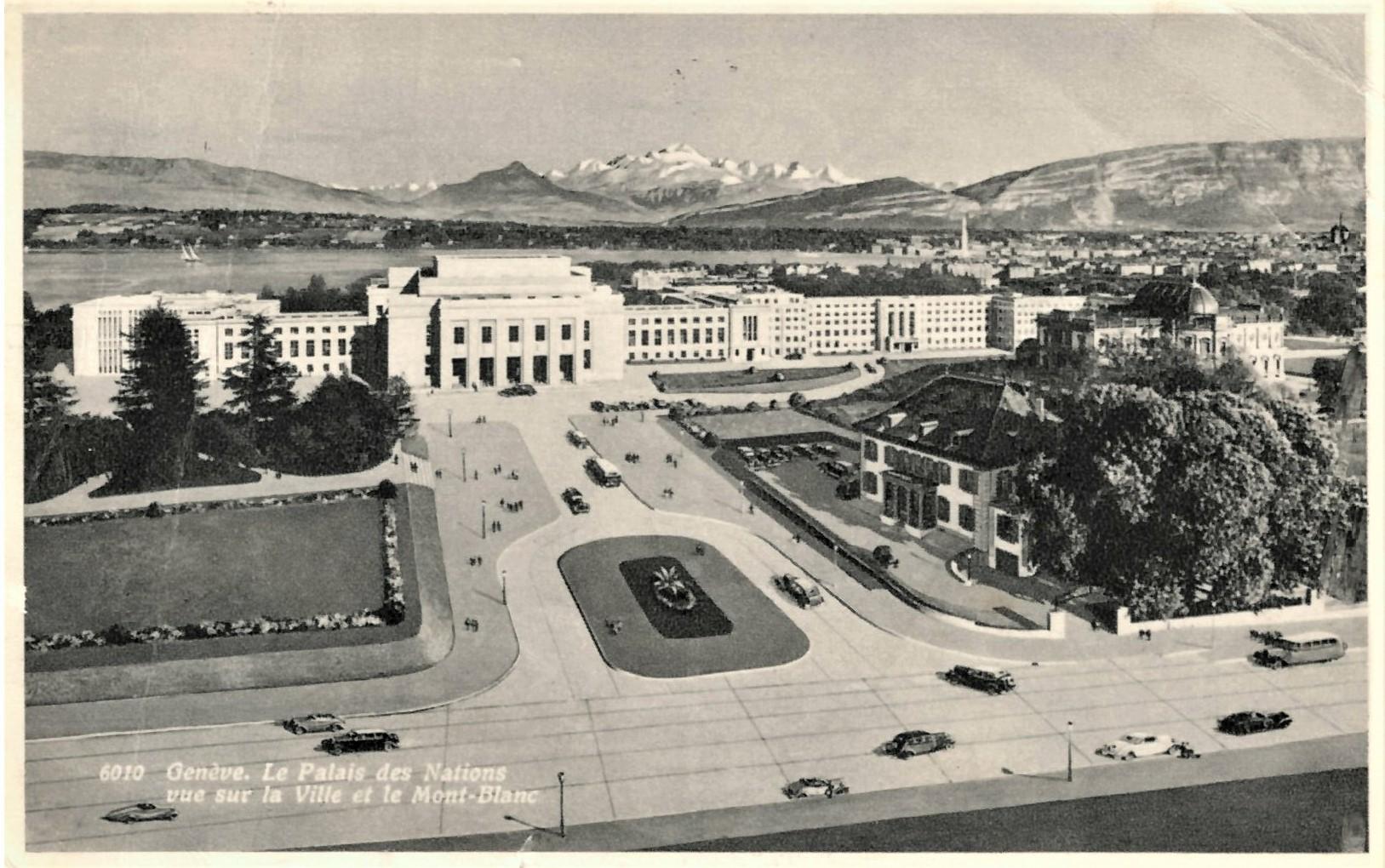
International Geneva was born out of the turmoil of the First World War. After leaning towards the German Empire from the 1870s, Switzerland quickly rebalanced its foreign relations in favour of France and the United States in 1917. Bern then promoted the potential of Geneva to be a player on the international stage, drawing the League of Nations there 100 years ago.
It all started with a scandal in spring 1917. Swiss Federal Councillor Arthur Hoffmann, in charge of foreign affairs, tried with the help of Socialist MP Robert Grimm to promote a separate peace between Germany and Russia. This could well have changed the course of the war in favour of the German Reich by allowing it to concentrate on the western front. However, France got wind of these negotiations at the end of May and made them public, setting off a resounding scandal. This became known as the Grimm-Hoffmann affair.External link
To mark the centenary of the founding of the League of Nations, swissinfo.ch is running a series of articles that shed light on this pivotal moment in the history of Switzerland and the world. With the League of Nations, the so-called International Geneva was born.
On 18 June, the matter was brought before the Swiss Federal Council (cabinet), and Hoffmann was forced to resign. He was replaced by Gustave Ador, a member of the Swiss House of Representatives and president at that time of the International Committee of the Red Cross in Geneva (ICRC).
The Grimm-Hoffmann affair “represented a peak of tensions among the Swiss,” writes historian Cédric Cotter in his book (S)’Aider pour SurvivreExternal link. “The country’s neutrality was under threat from without, while within, the French-speaking population was ready to explode in response to this Germanophile act. (…) Gustave Ador was the ideal candidate. His sympathies with the EntenteExternal link were beyond all doubt and his commitment at the head of the ICRC had bestowed on him enormous prestige, both in Switzerland and abroad.”
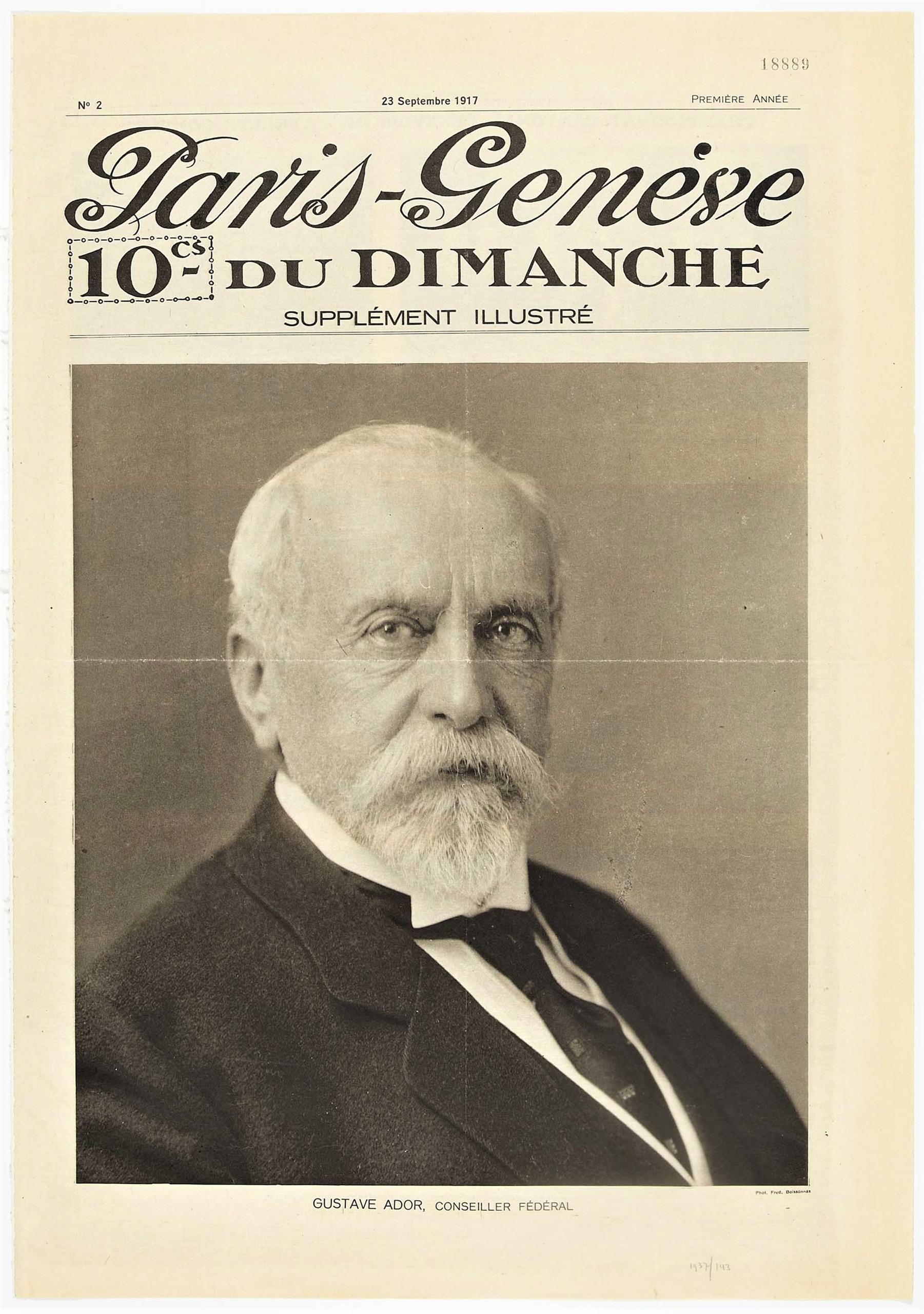
Building ties with the US
Beyond the events underlying the Grimm-Hoffmann affair, this change of political course illustrates Switzerland’s capacity to adapt to the powers surrounding it, as noted by the historian Marc Perrenoud: “Stressing its specific strengths and reorienting its foreign policy according to the international balance of power have been permanent Swiss features since the 19th century. This is precisely what happened at the end of the First World War. The role taken on by Geneva at that time is also due to the effects of the First World War on Switzerland, and on the world.”
Spared from a highly mechanized war that no one had imagined would last so long and be so destructive, Switzerland also developed its ties with the United States, the rising power of the new century.
“In 1917, the cabinet appointed Zurich industrialist Hans Sulzer as Swiss ambassador to Washington [a nomination greeted with enthusiasm by US President Woodrow Wilson]. German-speaking Switzerland, which had tended to look towards Germany and Central Europe, was redirecting its attention to the other side of the Atlantic,” wrote Marc Perrenoud.
An Association of Swiss Friends of the United States was founded at the Hotel Elite in Zurich in 1922. “However, Geneva presented additional advantages and had longstanding transatlantic ties,” continued Marc Perrenoud.
The aura of Geneva as the Protestant Rome was far from negligible in this context. After all, the reformer John Calvin was at the source of the city’s international renown. This fact, among other reasons, helped win the support of United States President Woodrow Wilson – whose father had been a Presbyterian pastor – for Geneva to become the seat of the League of Nations.
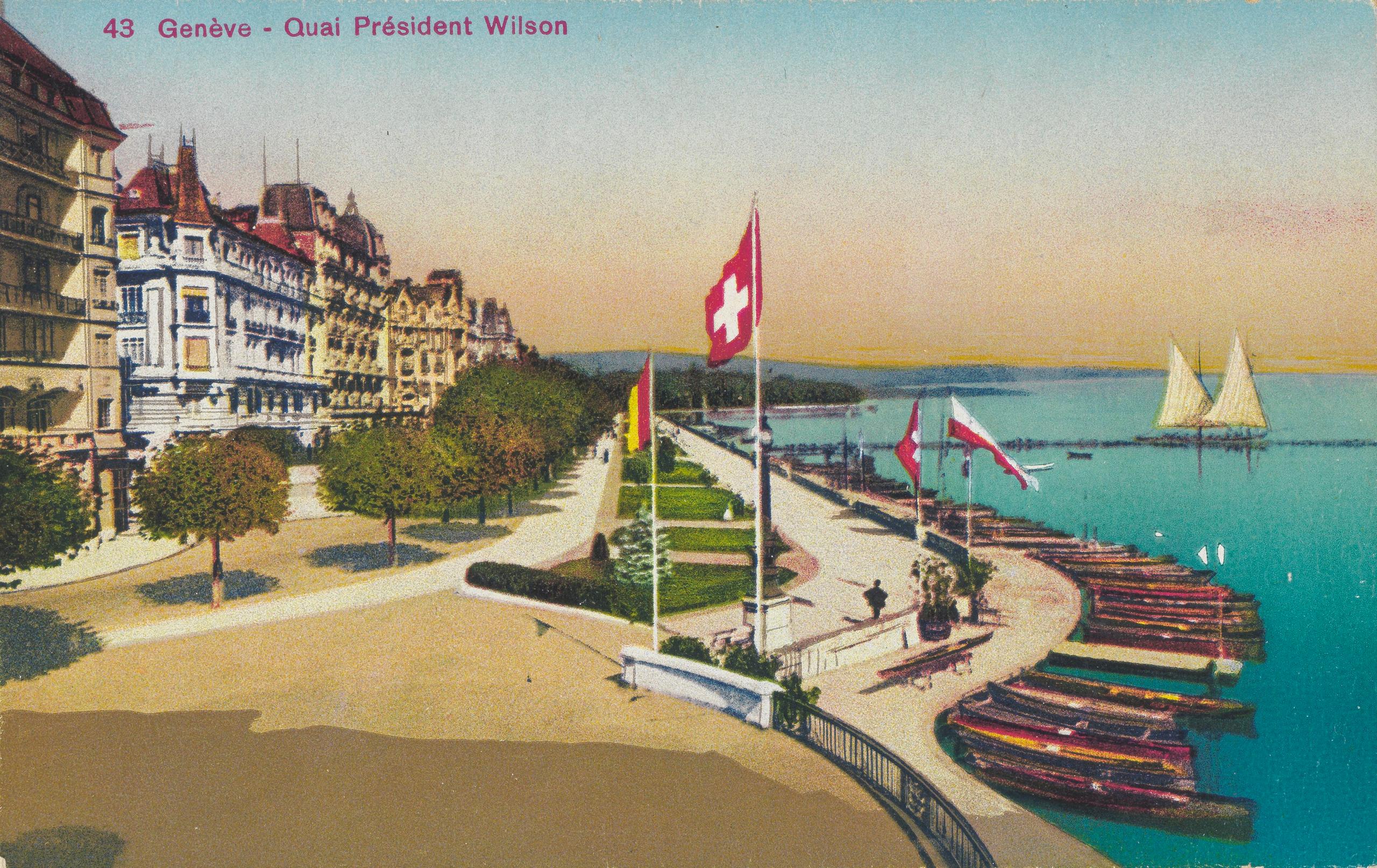
Americans in Geneva
The United States was, moreover, already well represented in the city, in particular since the arrival of James BatesExternal link. This former lieutenant-colonel of the Union army during the American Civil War had settled in Geneva, the hometown of his wife, Amélie Chenevière, in 1875. The following year, he had acquired The Continental Herald and Swiss Times, together with its printing press, and baptized it the Geneva Times, which later became the Tribune de GenèveExternal link. He also founded the Union Bank, which was absorbed by the Union of Swiss Banks (UBS) in 1919.
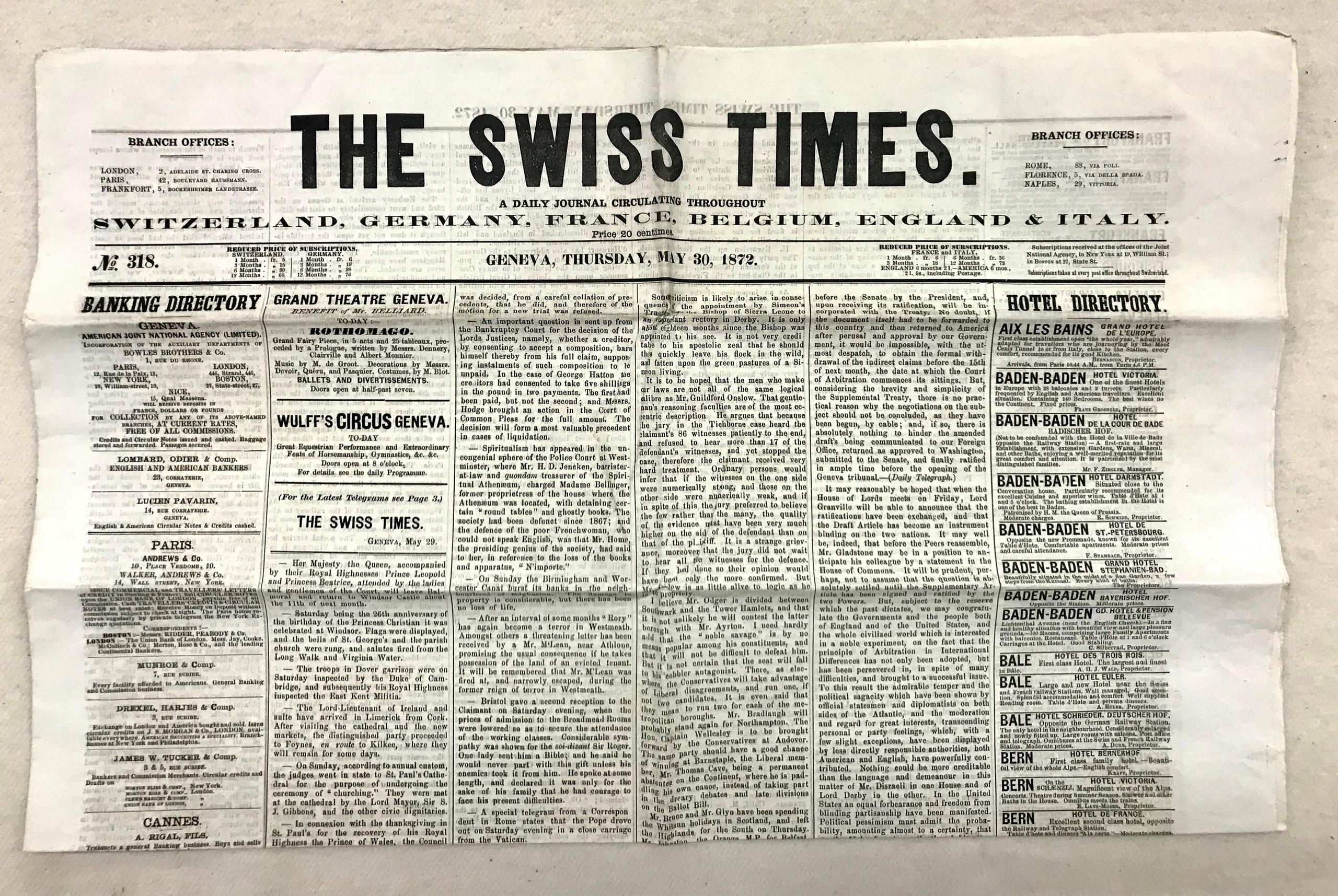
Another Genevan who came over from the United States, William Rappard, played a vital role at the end of the First World War. A Harvard-educated professor of economics, he was very active alongside Gustave Ador in lubricating relations with President Wilson and obtaining the seat of the League of Nations for Geneva.
It was William RappardExternal link who founded the Graduate Institute of International StudiesExternal link in Geneva in 1927, with strong support from the Rockefeller Foundation. The Rockefeller Foundation was also very active within the League of Nations throughout its existence, despite the refusal of the United States Senate to ratify the Treaty of VersaillesExternal link, preventing the US from becoming a member of the League.
The Graduate Institute of International Studies went on to train, among many others, generations of Swiss diplomats. And Geneva became the antechamber of Swiss foreign policy.
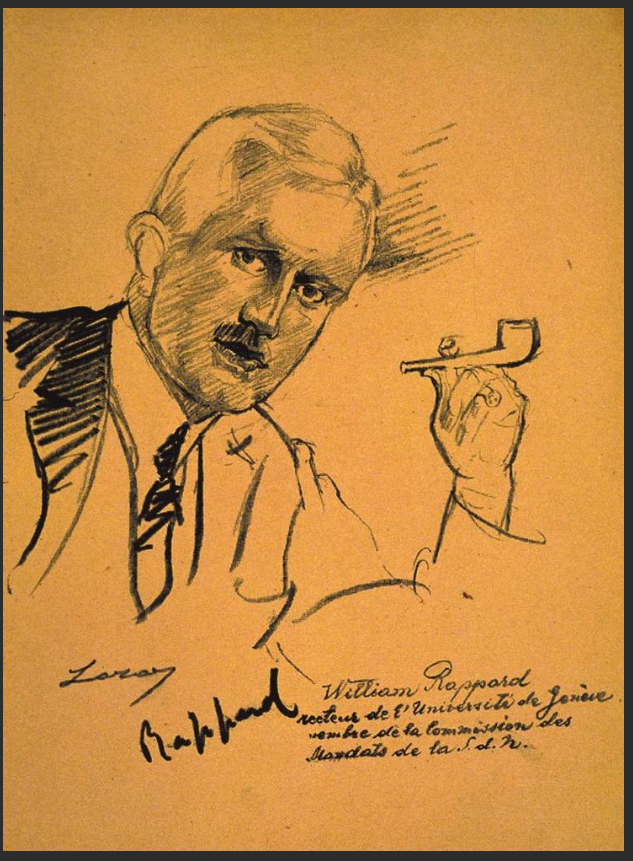

In compliance with the JTI standards
More: SWI swissinfo.ch certified by the Journalism Trust Initiative





























You can find an overview of ongoing debates with our journalists here . Please join us!
If you want to start a conversation about a topic raised in this article or want to report factual errors, email us at english@swissinfo.ch.